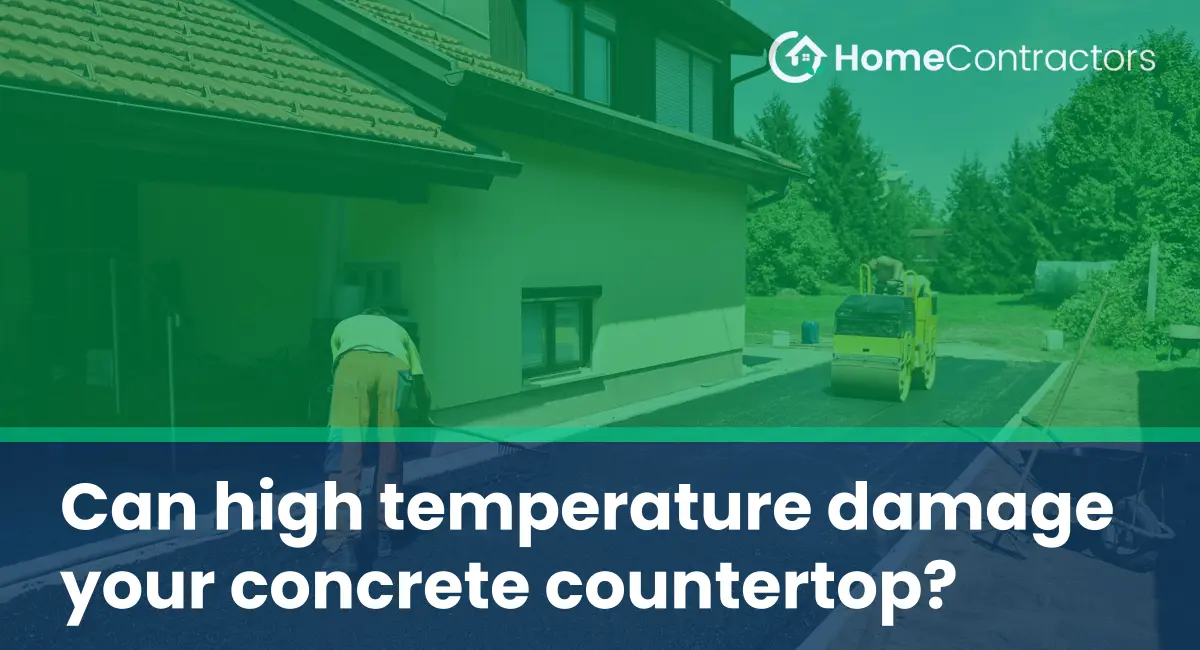In this article, we will explore the effects of high temperature on concrete countertops and the measures you can take to protect them.
Understanding Concrete Countertops
Concrete countertops are made by mixing cement, sand, aggregates, and water, which are then poured into molds and allowed to cure. This results in a solid and durable surface that can be customized to fit any design aesthetics. Concrete countertops are known for their strength, resistance to scratches, and heat tolerance.
Heat Resistance of Concrete Countertops
Concrete has excellent heat resistance properties, making it particularly suitable for kitchen countertops where high temperatures are common. It can withstand temperatures up to 500 degrees Fahrenheit (260 degrees Celsius) without suffering any significant damage.
Effects of High Temperatures
While concrete countertops are highly heat-resistant, it is important to note that prolonged exposure to extreme heat can have adverse effects. The following are the potential damages that can occur:
- Thermal Shock: Rapid temperature changes can cause thermal shock, resulting in cracking or even disintegration of the surface. For example, placing a hot pan directly on a cold concrete countertop can cause sudden expansion and contraction, leading to cracks.
- Color Fading: Prolonged exposure to high temperatures can cause color fading in certain finishes. This is more common in countertops that utilize dyes, stains, or pigments to achieve a particular color. If your concrete countertop is in direct sunlight or near a high-heat source, the color may gradually fade over time.
Preventing Damage
To ensure the longevity of your concrete countertop, it is essential to take preventative measures to protect it from high temperatures. Here are some steps you can follow:
- Use Trivets or Hot Pads: Avoid placing hot pots, pans, or dishes directly on the concrete countertop. Instead, use trivets or hot pads to create a barrier between the heat source and the surface. This will prevent the direct transfer of heat and minimize the risk of thermal shock.
- Install Heat-Resistant Coatings: Applying a heat-resistant coating can provide an extra layer of protection to your concrete countertop. These coatings act as a barrier against extreme heat and help prevent color fading. Consult with a professional or check with the manufacturer to determine the appropriate coating for your specific countertop.
- Avoid Extreme Temperature Changes: Minimize rapid temperature changes by gradually acclimating your concrete countertop to different conditions. For instance, if your countertop is exposed to cold temperatures, allow it to warm up gradually before applying heat. Similarly, when changing from high heat to cold, gradually cool down the countertop to avoid thermal shock.
- Regular Maintenance: Proper maintenance is essential to preserving the integrity of your concrete countertop. Clean spills promptly, avoid using abrasive cleaners, and seal the surface periodically. Regularly inspect the countertop for any cracks or signs of damage, and address them promptly to prevent further deterioration.
Concrete countertops are generally highly resistant to heat, making them a popular choice for kitchens and other areas where high temperatures are common. However, prolonged exposure to extreme heat can potentially cause damage, such as thermal shock and color fading. By following preventative measures and practicing regular maintenance, you can ensure the longevity and aesthetics of your concrete countertop for years to come.
